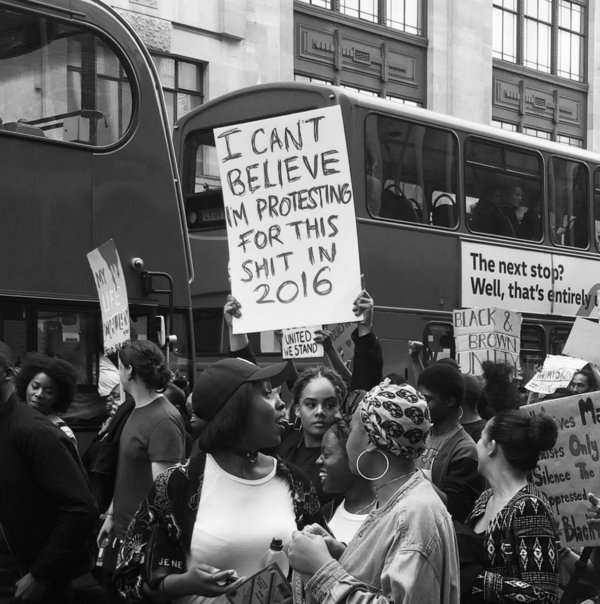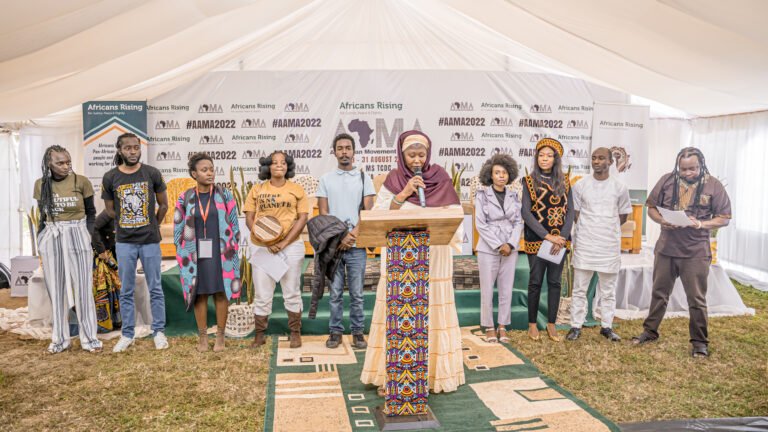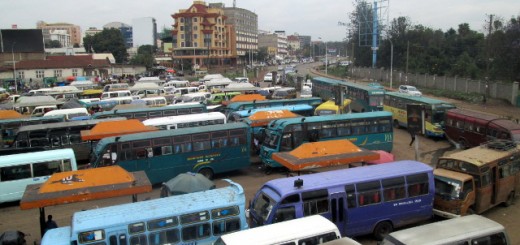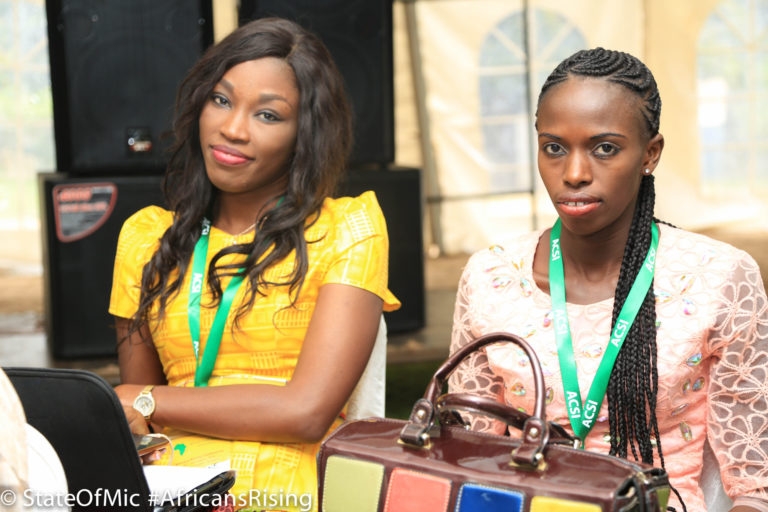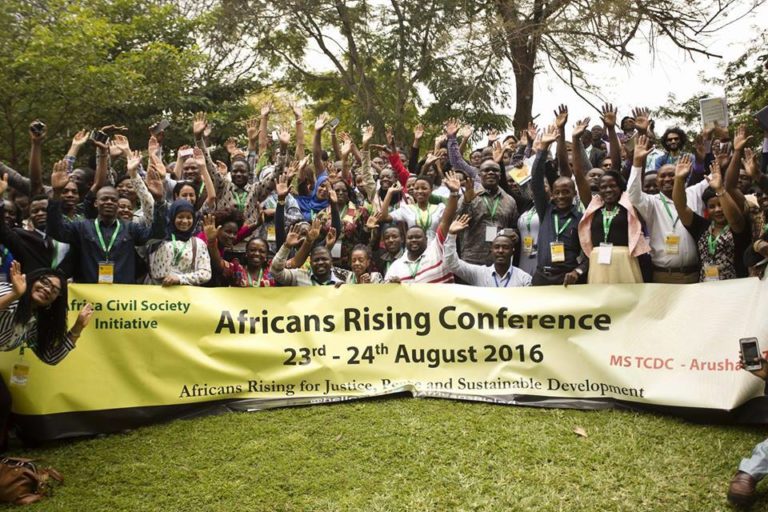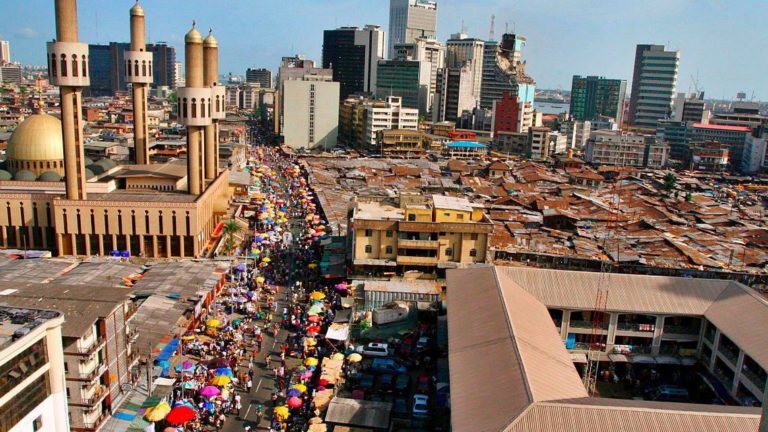Africa has the most youthful population in the world, with more than 20% of the continent’s 1.2 billion Africans aged between 15 and 24. Eight of the ten youngest populations in the world are in Africa – people under the age of 25 make up more than 66% of the population of Uganda, Chad, Niger, Angola, Somalia, Zambia, Mali and Malawi. This youth buldge can translate into either an opportunity or a curse for Africa, depending on how it’s harnessed. But is Africa ready to reap this youth dividend?
This youth bulge is numerically and socially visible across the African continent, but this visibility has unfortunately not translated into political and economic gains for young people, who often find themselves locked out of political and social decision-making processes, or sometimes only included for purposes of formality.
The continent might have some of the world’s most youthful nations but it has some of the world’s oldest leaders, many of whom seem to have run out of fresh ideas. This glaring disconnect – that nations’ leadership do not reflect their demographics – does not bode well for development. Nobody understands the needs and dynamics of young people better than…young people. Africa cannot benefit from its huge youthful population if it is continuously and systematically excluded from meaningful participation.
Youth often find themselves excluded from economic processes, making it harder for them to achieve personal growth and self-advancement. They are often regarded as cheap labour for the production process, instead of as innovators. Outdated and sometimes irrelevant educational systems are partly to blame for that. Most of our current educational systems are designed to churn out consumers of knowledge, rather than producers of knowledge, generating job seekers rather than job creators. They produce students and graduates who are conditioned to be comfortable in the present, to rarely question prevailing narratives and why the present is as it is.
While Africa’s youth population has surged, opportunities for young people have not. Many remain unemployed. In thinking of solutions to this unemployment problem, many governments across the continent always talk of ‘job creation’. But job creation alone cannot be a solution. What’s needed is an environment that enables and incubates innovations which can help Africa solve some of the challenges it faces. Innovations in the fields of IT, sustainable agriculture, and efficient production and consumption of energy are the future for Africa – more so if well balanced with good care for our environment.
A perfect example of the innovative talent and potential of African youth is that of 17-year-old Njii Collins. Njii was named the first African Grand Prize winner of Google’s global Code-In contest in February. This self-taught coding champion competed against more than 1,300 competitors from 62 countries. And he did so from a city in Cameroon that was, and still is, at the centre of a brutal state crackdown on public protests by minority communities against marginalisation. His school has been shut and the internet blockaded for months but he succeeded in an environment that is difficult to survive in, let alone excel.
A youth bulge means increased demand for food. With changing climate patterns, rainfall has become unpredictable across many parts of the continent, jeopardizing food security in the process. Here again, opportunities for solutions lie in engaging youth and harnessing their potential for innovation in the area of agriculture and food production. This could not only promote food security but increase employment opportunities in the sector as well.
Social exclusion and marginalization of youth has far-reaching negative implications for African youth, who face many hurdles in their struggle for a dignified existence. We have seen increased anti-social behavior and susceptibility of young people to political manipulation, organised crime and substance abuse, among others. This could effectively defer the huge promise that the youth bulge holds. Africa must move away from marginalizing its youth and be more inclusive if it is to reap a youth dividend.
Don’t agonise, organise!
Should we start seeing the change we are demanding, the question becomes: are African youth ready to lead Africa into the future?
Being ready to lead Africa into the future means that African youth should not wait for change and inclusion to come knocking. It means that this generation must be at the forefront of struggles against injustice and marginalisation – struggles for climate justice, women rights, and land rights – for these too are part of a larger struggle to liberate African people from the effects of centuries of oppression, plunder of natural and mineral resources, and suppression of fundamental human rights to achieve justice, peace and dignity.
Instead of agonizing, youth must organise themselves and be vocal in demanding what they deserve. They must, in essence, be ready to speak truth to power. Yvonne Owuor writes in her novel Dust that the language of silence is sometimes more potent and destructive than the language of vocal protest because it abnormalises the normal. Silence may always be an easy alternative. But silence allows unjust practices like political repression, gender discrimination, dispossession of ancestral lands, and even the exclusion of young people be viewed as nothing out of the ordinary. Silence is not an option.
Young people are awakening, and are increasingly interrogating systems that are politically, socially, economically and culturally oppressive, and which keep them from realising their full potential or living a meaningful life.
African youth have indeed been at the forefront of several recent struggles in the continent. Young people in the #FeesMustFall student movement in South Africa have been at the forefront of challenging the legacy of an unjust colonial and apartheid education system. Youth played a prominent role in the Tunisian revolution that ended Ben Ali’s 23 year firm grip of power. In Sudan, many youthful activists and bloggers are in detention for criticizing the Omar al-Bashir’s government. There also exist countless uncelebrated youth and youth-led movements across the continent, continuously fighting for more justice and equality.
In Kenya’s Laikipia region for instance, the youth-led Forgotten Majority movement has been fighting for equal access to water for all. There are countless such formations of young people and youth-led movements across the African continent that don’t make it to our newspapers, radios and television sets, and who largely go unnoticed. They are our unsung heroes.
In his celebrated book The Wretched of the Earth, Frantz Fanon notes, “Each generation must, out of relative obscurity, discover its mission, fulfill it, or betray it.” This generation of African youth will be decisive in whether Africa rises, or sinks. Either way, they can’t do it alone. . We are seeing innovation hubs emerging in different regions of the continent and global support for the development of technology in Africa. It is up to us to ensure that our governments seize the initiative to build enabling environments for young people to create future-forward sectors that will generate new, sustainable employment for current generations and generations to come.
Author: Sungu Oyoo

